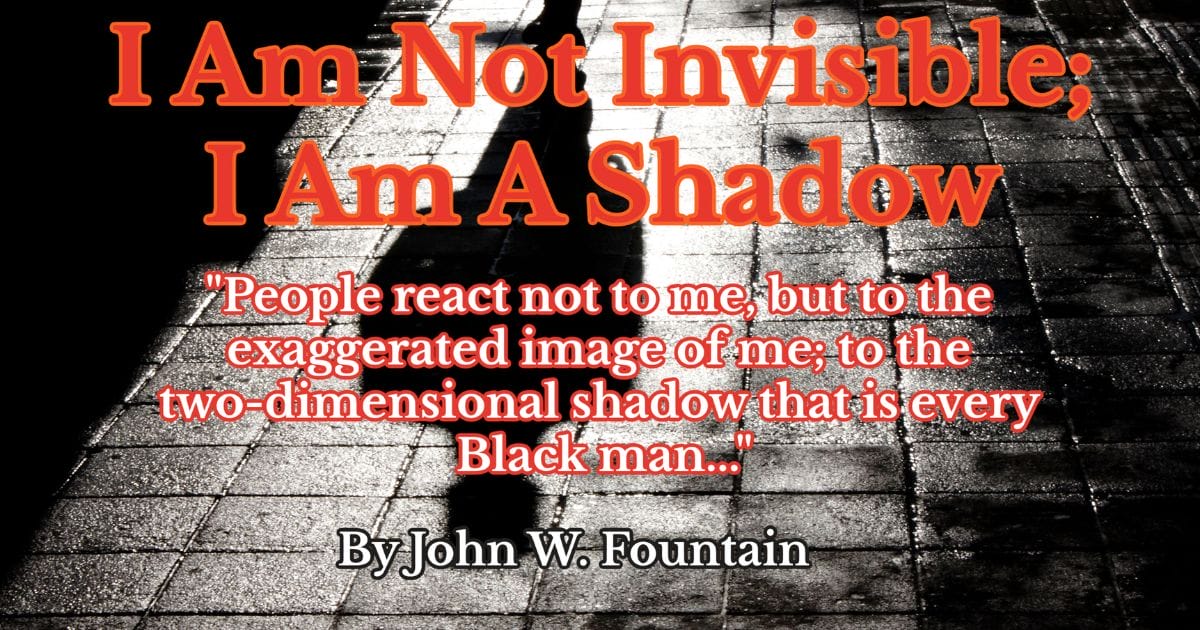(Photo: Shutterstock; Design John W. Fountain)
I stand here a lone shadow on the corner of Ida B. Wells Drive and Wabash Avenue in this still glaringly segregated city of my birth. The winter wind blows cold amid the roar of downtown traffic, speaking to my Black soul.
Shhhush, the winds used to whisper. Be quiet. The less you speak, they assured, the less “they” know. They’ll judge you, scorn you, say that your feelings, or the way you think or see the world, are misconstrued, invalid, or simply not so. They don’t fear the Black man with the gun but the smart nigger with the pen and tongue.
I am a witness. Over 63 years in this Black body, I have watched their smiles and their once approving eyes—mostly of whites—suddenly curl into a contentious frown as it becomes clear that my Black paradigm and theirs do not completely coincide. Proof that I was still only a stranger to them. Not the “acceptable” Black man they had thought me to be—tolerable, malleable. Not as Black as the others. And the others not Black like me.
But let the record show: I am Black Black. Unapologetically, irrefutably and undeniably Black. And though I am not a practitioner of charades, I have learned, as a matter of my own survival, to speak with more treble and less bass. To shrink myself. The art of rendering oneself invisible—at least of going ghost or dwelling inconspicuously as a living breathing shadow.
This is born of the knowledge that at some point my perspectives, beliefs and truths as a Black man born and bred not in the American Mainstream but in the American Drained Stream, will inevitably rub some whites—and Blacks—the wrong way. That I will eventually say something, write something, that offends.
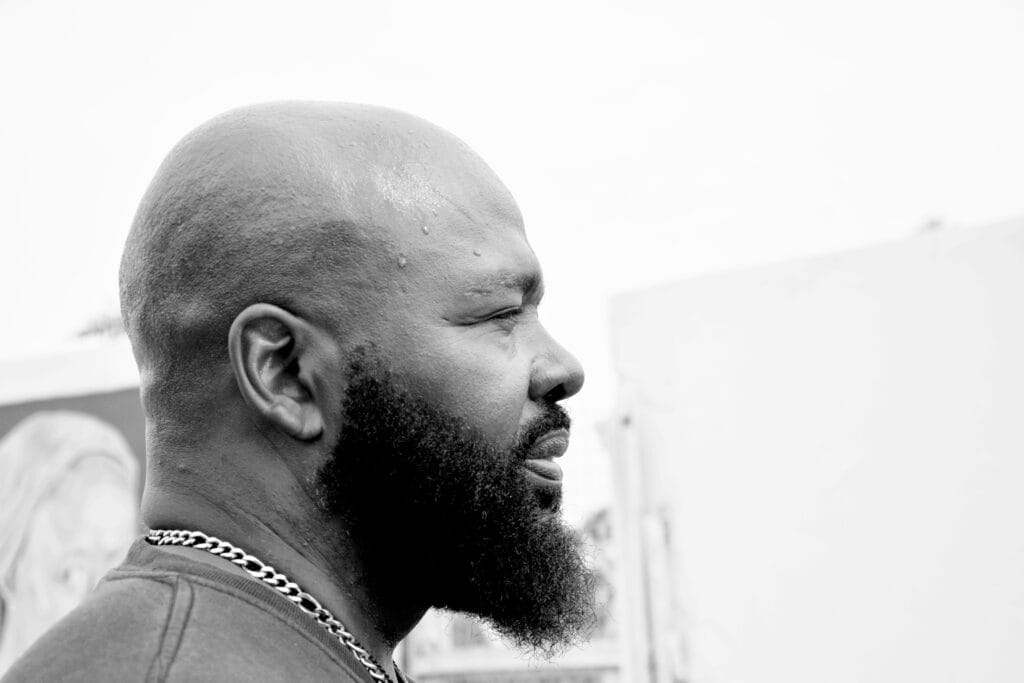
As a Black man, I am America’s most hated, most feared and most loved. We are, as Black men, in the words of Author Ellis Cose, “The Envy of The World.”
And yet, the world does not truly love us. Not in our full complexity in 21st century living color and HD. Not the thinking me. The me speckled with flaws and feelings birthed and shaped in the totality of my traumatic DNA and my unique life’s journey on the other side of the tracks. Not brown-eyed shy and sensitive me. The wounded me.
The me who has been ostracized, historically American terrorized, and who still remains justifiably fearful of simple traffic stops by the police. The me who cannot shake from my ears the soul cries of George Floyd as that white cop knelt on his neck. Or erase from the pages of my consciousness L.A. police’s merciless pummeling of Rodney King. That horrifying coroner’s report of the cop’s 16 shots that riddled Laquan McDonald’s Black body.
Or those portraits of American hate forever seared into my soul: From the incomprehensible black and white photographs of American lynchings to Emmett Till, whose grotesque body was returned to his mama here in September 1955, from Money, Mississippi, where white men tortured and murdered him; the bloodied mattress and the walls pockmarked by more than 100 police bullets that riddled the West Side apartment not far from where I lived that fatal early morning on December 4, 1969, when Black Panthers Fred Hampton and Mark Clark were slain while they slept.
I was 9 then. Today I am 63.
I suffer PTSD: Post Traumatic Shadow Disorder.
I am afflicted by a thousand stares and innuendos in the same place where white “friends” and “colleagues” sit comfortably and undiscerning of my internal toil. I decline requests to sit on various advisory boards because I know deep down that they really don’t want to hear, or care, what I think. That they are unwelcoming of notes played on the pentatonic scale.
I have learned that a certain Black male perspective and voice is resisted and despised in America—even in American newsrooms—though at times tolerated. And yet, though often reviled, challenged and devalued—we endure for a season, eying the greater good. At least until terminated by our own hand or by mutually agreeing to part ways with corporate America.
The years have taught me to decipher, often through mostly nonverbal cues, when someone doesn’t like, despises, or fears me. Only to disclose my feelings in moments of full vulnerable transparency and have them reduced to being my misperception, or else altogether shot down. Peppered with probing, disbelieving questions. Made to feel that the problem is me. Not “them.”
Me.
Me, that uncertain, sometimes unprotected, little Black boy who became a big Black man who has learned to protect the heart, mind and soul of the boy still cowering inside. Me, the menace. The shadow and eternal American boogeyman. The me who knows that the moment will surely come when I say, do, or write something that will drive a wedge between me and them, and signal that the time has come for me to move on. At least to withdraw to my social shell.
I stand on Ida B. Wells Drive, Trump Tower looming north in the distance. I wear a suit and tie and wool topcoat, my bag containing my MacBook slung over my shoulder while heading to my job at Roosevelt University as a tenured full professor. I am a native son come home. And yet, I am painfully aware that to many who see me, I am just another nigger out here amid the wind and dark shadows.
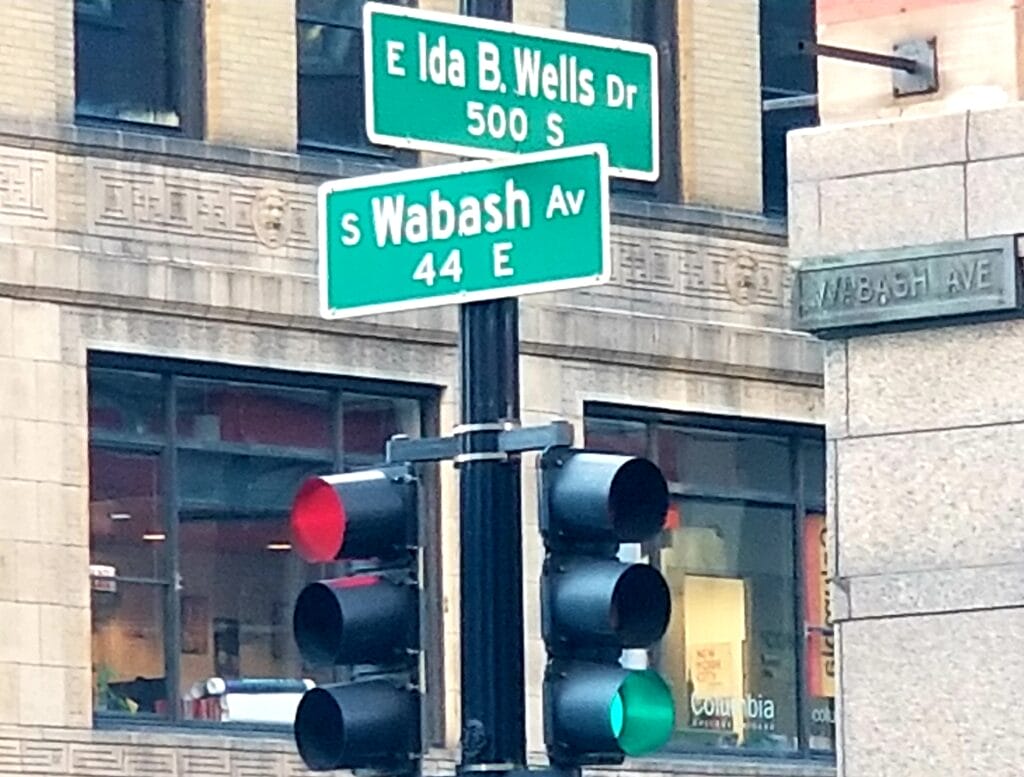
‘I Am A Shadow’
I am not invisible. I am a shadow.
People react not to me, but to the exaggerated image of me; to the two-dimensional shadow that is every Black man.
That is why white people with whom I have worked, people with whom I have laughed and joked and traded stories, have sometimes passed me on the street and not recognized me. Out of context, out of safe surroundings, I am but one among a cast of dark shadows.
Shadows are insubstantial. They are inconsequential. But they are menacing. They loom disproportionately large. Light from the right angle in a darkened bedroom makes a teddy bear a grizzly.
Shadows turn men into bogeymen.
I am a shadow.
It is the experience of Black men in America. To speak publicly of our collective experience is to risk being called racists or whiners, though our collective silence will not make it go away.
Racism lives. It is delivered to us in one of two ways. The first is a slap. You are stopped and frisked by police, because of your race. You overhear an ethnic joke or you are called a name. Told you talk like a “slave.” The insult is overt. In your face.
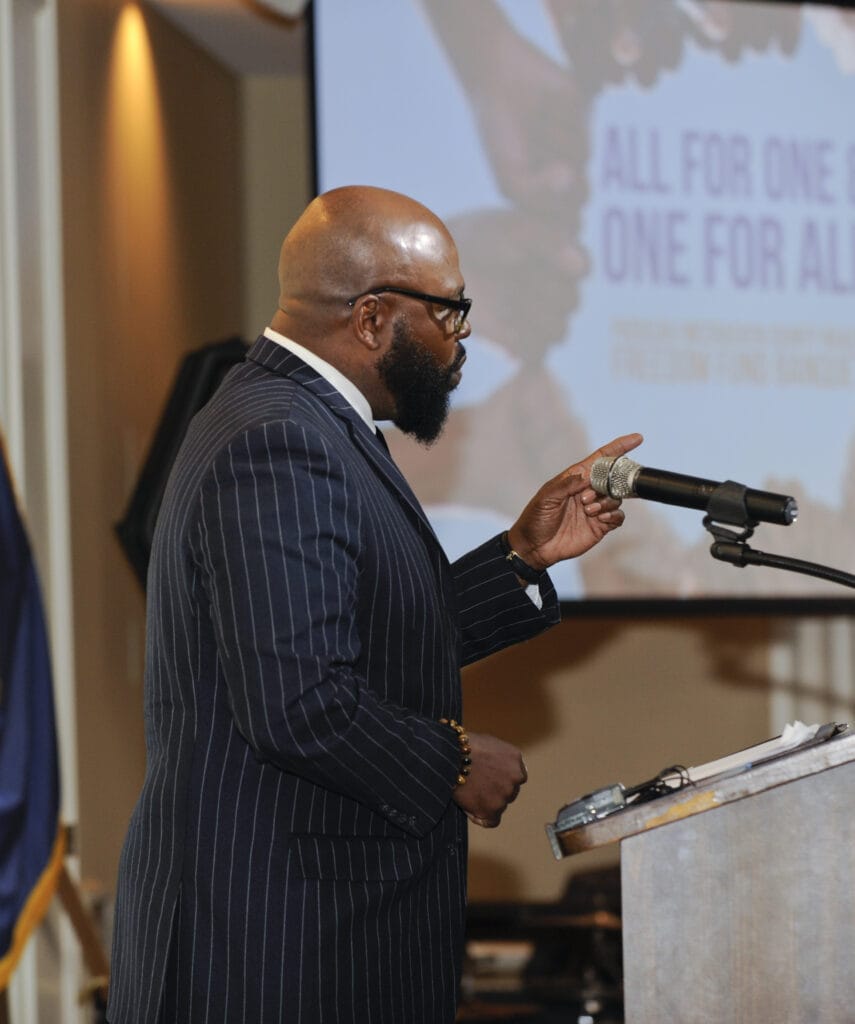
The second kind is like the wind. You cannot anticipate or discern its source. It is anonymous. And yet, like the wind, you feel it. Hear it. See its effects, buffeting, swirling, unsettling. You incorporate it into your life. You go on in spite of it.
I am not deaf or blind to it. I stand, braced, in the midst of it. I am a shadow.
—Written originally by John Fountain at 18, as a freshman at the University of Illinois at Champaign-Urbana
‘Not The Trusting Type’
I am by nature admittedly not the trusting type. Not one to easily let people in. This is undoubtedly a holdover from my days of poverty and shame in the ’hood. My ghetto boy shield of deflection and protection. I learned early on to try and not let on to how much I was suffering. To hide my poverty, pain and shame as best I could.
I rarely ever invited friends home to our West Side apartment where my biological father had long ago abandoned us. I figured they would snicker at our tattered dingy sofa, all the roaches and the mice. I also figured they would tell my business, look down on me, judge me.
I have learned over time and said aloud more times than I can count: “They want my gift, but they don’t want me.”
This, however, is not a matter of black and white.
In the Black church, where I grew up as the grandson of a Pentecostal preacher, I was told whenever I raised simple questions about why some things, like backbiting and white lies, were considered minor sins while some other seemingly inconsequential things, like going to the movies and dancing the boogaloo, were major sins: “John, you think too much.”
Their criticism shunned me into silence, especially in the church, which I came to believe prefers most of us brothers to be spineless, speechless and “sackless.” At least not prone to troubling pastoral leadership with meddlesome questions, or pricking the church’s status quo. Not all churches, but far too many.
“The church can use a brother like you,” I have at times had brothers say to me, bemoaning my absence for many years from the institutional church.
And therein lies the problem. The church wanted my gifts—my tithes, my talent, and my time. But not me—though never understanding that the greatest gift from me is the gift of me. I eventually elected to remove me. To resort to the old and learned methodology of saving me, even if in some ways by doing so I also lost a part of me.
Growing up on survivor’s island made me an introvert and particularly distrusting of outsiders, even long after I had escaped. Inquiring minds beyond the ’hood always trolled for the fine details, like during college in the 80s whenever someone learned I was married and in school with a wife and kids. Students and some professors alike wanted to know how we were making it.
The answer was simple: the poor man’s scholarship combination of welfare, student loans and me working my ass off at whatever jobs I could find—whether as a janitor, as department store security guard, as food service hospital worker, or in countless roles at various and sundry places of employment opportunity, plus occasional odd jobs.
The fine details were that we were making it by any means necessary, sometimes barely, and having to rely some years on the Salvation Army or the Neediest Children’s Christmas fund to put gifts underneath our tree. I didn’t dare tell them that. And any answer—no matter how vague—often led to only more questions and finally to an uneasy silence as I stared at them with no response at all and wanting to melt into the floor as they stood with no detectable sense of couth, sensitivity or compassion.
The fine details during my summer internships at places like Pioneer Press Newspapers, the Chicago Sun-Times, Modesto Bee and The Wall Street Journal were that I wasn’t your ordinary college intern, but of the married-with-children kind. Being fearful that an editor’s knowledge that I would be toting a family to my internships could affect their decision to offer me the position kept me from divulging that little fact during the interview process. Once I showed up for the summer gig, it was a done deal, and I did my job like every other intern. But after work, I mostly kept to my family and to myself.
‘The West Side Burned Into The Morning Light’
To avoid questions, I learned to avoid people altogether whenever possible. To decline invitations of colleagues to social functions, where small talk and people’s curiosity would inevitably lead to an inquisition. It was cause enough to reinforce the notion that I should keep quiet and mostly to myself.
Such is an unenviable, if not ultimately impossible, task for a journalist, not the least of all for a columnist. Even before penning my first column, I was aware since childhood that my way of seeing the world always seemed different in some ways than the status quo.
Life in my K-Town neighborhood transpired in vivid color before my eyes, like scenes in a Hollywood movie: The ruby red apples on Mr. Newell’s tree; the crimson red blood from Mrs. Hooks’ stabbing of her drunken husband on the sidewalk that summer afternoon at the annual block club party on South Komensky Avenue; the angry red flames that licked the pale night sky that April when, at age 7, I watched from our third-floor apartment window as the West Side burned into the morning light after news of Dr. Martin Luther King Jr.’s assassination.
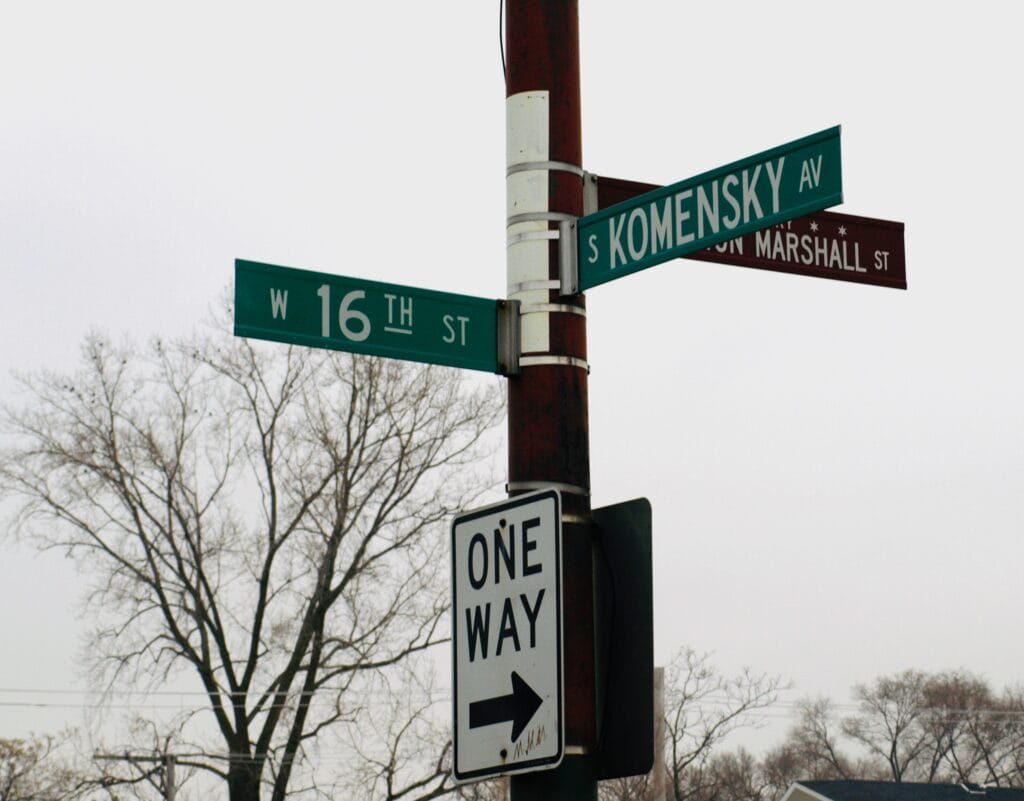
As a boy, I could always see the invisible walls that separated my neighborhood from the towering downtown skyscrapers and the world beyond, although I could not discern whether those intangible but glaring barriers were designed to keep us in or them out.
In college, I assessed during classroom discussions about history or social science and race or even journalism that my thoughts or beliefs often did not align with those of fellow students, most of them white—or with my white professors’. I sometimes mustered the courage to speak my mind as students, probably stunned over my rare commenting in class, sat completely silent.
Back then, I could not have imagined I might ever become a columnist and willingly share my thoughts, personal stories and opinions in public pages. I did, however, admire the courage and writing prowess of former Chicago Tribune columnist Leanita McClain whose posthumously published book, “A Foot in Each World,” I read while in graduate school for an issues class. I marveled at Leanita’s precision as a wordsmith, at her blatant honesty and unbridled tongue, particularly in a piece titled “How Chicago Taught Me How To Hate Whites.” Her scathing essay was published originally in the Washington Post in 1983 in response to the racial aftermath of Harold Washington’s election as Chicago’s first Black mayor.
“I’d be a liar if I did not admit to my own hellish confusion. How has a purebred moderate like me—the first Black editorial writer for the Chicago Tribune—turned into a hate-filled spewer of invective in such little time?” she wrote.
“…‘The Blacks.’ It would make me feel like machine-gunning every white face on the bus. Why couldn’t these people just say, ‘Blacks,’ letting it roll from the tongue?”
Leanita’s words and thoughts, her process of unveiling her deeply hurt and truths, which drew national attention and stoked a firestorm in sweet home Chicago, drew me in. I deeply admired this Black woman journalist whose writing embodied the searing and penetrating spirit of Ida B. Wells with apoplectic precision and without apology. Indeed inasmuch as I consider Professor Bob Reid at the University of Illinois at Champaign my journalism father, Leanita was my mother in column and opinion writing.
I decided that if I ever became a columnist someday, I would want to mirror her honesty, integrity, craftsmanship and eternal flame. I never had the opportunity to meet Leanita. She committed suicide in May 1984, at age 32, less than a year after her Washington Post essay appeared. Today, at nearly twice Leanita’s age, I think I understand and feel so much of her pain.
‘Unceasing Assaults Against Our Psyches and Souls’
Daily I am confronted with the risk of speaking and writing concerning my pain and this drain of being a Black body in America. With the deep disappointment and dismay over systemic evils and stubborn and persistent political, social and economic inequities coupled with myriad microaggressions endured daily. I am confronted by the surety that words and views that run counter to the prevailing myth of the American Dream, or expressions of the lived experience in the Black body, will fuel the wrath of dissenters and haters, like Leanita’s did.
I am aware that this can occur even among those you had considered to be friends but who eventually join the chorus of unceasing assaults against our psyches and souls and that push and prod us with intoxicating allure to reach for a bottle of pills or the gun, or for some other method to numb the senses.
I choose the pen, having come to find at last peace in dwelling in my own skin and having accepted that I am a square peg. That is what my former editor Milton Coleman often asserted in our conversations during a turbulent spell as a reporter at the Washington Post. I can still hear Milton, speaking matter of factly, “I tell everybody, the problem is, John is a square peg in a round hole…”
The problem. The problem? So, I’m the problem?
Me? Not them? Yeah, okay.
Milton’s assessment always bothered me. Not that it wasn’t, in one sense, true. Not that I actually fit in on the Post’s Virginia desk, where, when I arrived in 1995, I was the only Black. Not that after covering my beat on cops and courts in Fairfax County, Virginia, for more than a year I wasn’t champing at the bit to get to the D.C. metro desk to a beat in the heart of the city, where I could cover issues of a more decidedly urban flavor and daily encounter more people of color. Milton’s words bothered me because a part of me wished that I actually fit into their predictable, unyielding, and unimaginative, round vanilla hole.
That has always been the crux of my dilemma. I am a square peg. And my evolution as a Black man, as a Black writer in America, is that I have finally come to accept my “square-pegged-ness,” even if and when it offends.
“You make the West Side sound like Beirut,” a “friend” once wrote to me some years ago about contrasting my writings on violence in the Chi to the war-torn city in Lebanon. She went on to explain in an email that she had visited the West Side numerous times and had never heard the crackle of gunfire, never witnessed victims’ blood on the streets, never seen a body drop.
I wrote back, knowing full well that I was about to lose a friend.
“You don’t live here,” I explained. We know where the blood once stained the streets. Where the bodies fell. We have smelled the gunsmoke. Witnessed the chaos. Felt the rush of fear. Prayed, then exhaled when the shooting stopped, and held our breaths when the shooting started once again. We have cried at funerals as hearse wheels for children more than for adults rolled again and again and again.
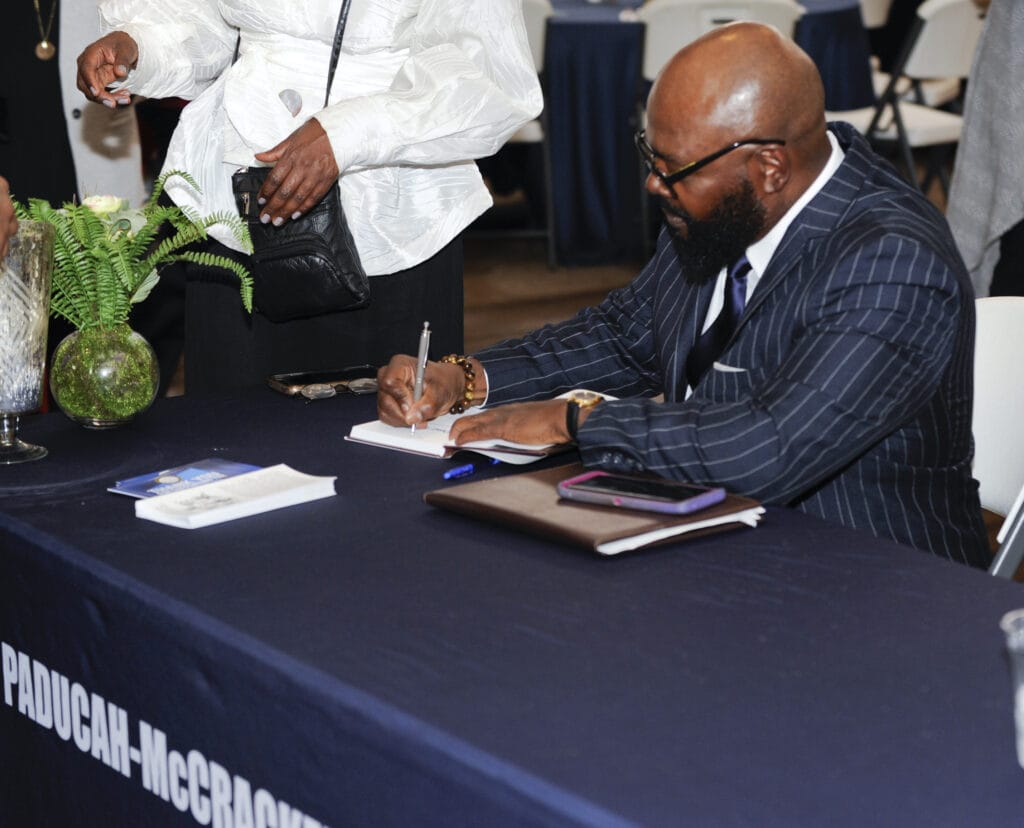
I explained to my soon-to-be former friend that it is easy to pontificate from the other side. To talk about violent crime being down or nonexistent when you are blind to the innumerable, invisible corpses through the years still lying cold in the streets or to the ghosts of Murder Past, Murder Present and Murder Future that are detectable both at day and at night.
I explained that it’s easy to talk when you have never lived over here, only over there, having never walked a block in my shoes. Having never known the daily toll of your veins coursing with fear. Or having to calculate the cost of opening your mouth to speak truth that is inseparable from, and also indispensable, to who you are at your core. And I lost a “friend.”
Here lately, I find myself choosing to dwell again over here—on the side of life where my own bittersweet realities no longer are tormented by questions or doubts about the validity of what I think, believe, see, feel. Finally, I am comfortable in my own Black skin.
I stand here alone on a corner in my hometown, content with my life as a shadow. I embrace the wind in these times that compel me, even at the risk of losing friends and, most importantly, my soul if I say nothing.
Speak, the winds now whisper, Black man, say something.
Email: [email protected]
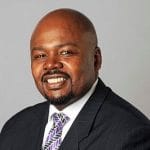
John W. Fountain
John W. Fountain is a professor of journalism at Roosevelt University and a 2021-22 U.S. Fulbright Scholar to Ghana, where he is a visiting lecturer at the University of Ghana-Legon and researching his project titled, “Hear Africa Calling: Portraits of Black Americans Drawn to The Motherland.”
-
John W. Fountain#molongui-disabled-link
-
John W. Fountain#molongui-disabled-link
-
John W. Fountain#molongui-disabled-link
-
John W. Fountain#molongui-disabled-link

